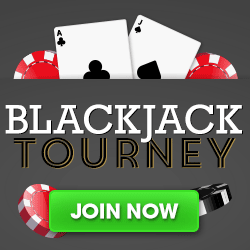Keno Comes To North America
the game that we now identify as keno originated in China over 3000 years ago. Han Dynasty ruler Cheung Leung organized a lottery that involved selecting from 120 Chinese characters as a means to raise much needed funds to finance an ongoing war. It’s unclear what the game was called at the time but it was likely where the game we now know as ‘keno’ began. At some point, it started to be referred to as the ‘Chinese lottery’ though this was likely limited to foreigners. It’s doubtful that the game was referred to in this way within the country.
Before we examine how this game made its way from China to North America a general disclaimer is in order. The game that Cheung Leung ‘invented’ was nothing more than a lotto game and it’s almost certain that similar games were developed independently elsewhere in the world. For that reason, much of the explanation for how the game became popular in North America is mere speculation. In fact, other than a few anecdotal narratives there’s little concrete evidence to explain how the ‘Chinese Lottery’ eventually became ubiquitous at Nevada casinos.
Top Texas Casinos
Chinese Traditions Spread With Immigration
The most plausible theory for the spread of the ‘Chinese lottery’ to North America is immigration. Chinese immigrants introduced North Americans–primarily in the United States and Canada–to many components of their culture, most famously food. It makes sense that the games and diversions they enjoyed would also get assimilated in such a manner. The sanitized version of the immigration narrative suggests that Chinese immigrants brought their games to the US where it caught on with co-workers and spread from there in games with Americanized names like ‘boc hop bu’ and ‘puck-apu’. The point of origin has alternately been speculated to be Chinese sailors in San Francisco or immigrant railroad labor in other parts of the Western United States. This is essentially how Chinese food came to North America and spread throughout the continent.
There’s only one problem with this version of events–it doesn’t explain how the game spontaneously seemed to ‘pop up’ in major cities well to the East such as Houston (where the name ‘keno’ may have become synonymous with the game) and St. Louis. A more likely scenario is based in the fact that at the time the United States was a heavily racist country. The only opportunities available to Chinese immigrants were in the service industries or entrepreneurial ventures. Then as now, the United States was also horribly puritanical and as such gambling was illegal. It’s more likely that Chinese immigrants seized upon this opportunity in the same way as Italian, Irish and other immigrant groups and provided gambling ‘services’ to local citizens of all races. At it’s essence, the game of keno is not much different than ‘numbers running’ that became common in cities along the Eastern seaboard.
Keno Comes To Nevada
The name keno was used at various points prior to the legalization of casino gambling in Nevada in the 1930’s. The immediate popularity of keno in Nevada casinos is also an example of opportunism. In the legislation legalizing gambling no provision was made for lotteries and they remained illegal (and still are today). To get around the law, casino operators changed the name of the game from ‘Chinese Lottery’ to ‘Horse Race Keno’. At some point, the 120 characters had been reduced to 80 numbers and the casinos offered the game on the (flimsy) pretense that players were betting on a ‘virtual horse race’. The game would eventually become accepted by state regulators at which point the ‘horse race’ subterfuge was dropped and the name ‘keno’ kept.
Keno has evolved somewhat since the early days–there are fewer ‘traditional’ keno games offered in casinos with paper tickets and physical balls. There are many more video keno games offered not only in Nevada casinos but by state lotteries nationwide.











